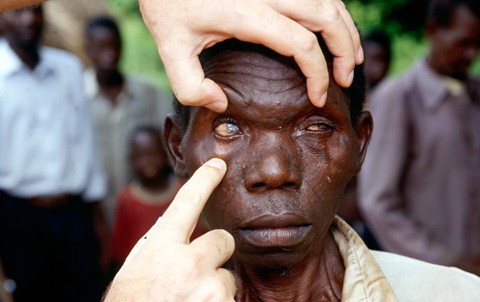HEALTH

NIGER BECOMES FIRST AFRICAN NATION TO ELIMINATE RIVER BLINDNESS – WHO
In a historic public health achievement, Niger has become the first African country to eliminate river blindness, a parasitic disease that is the second-leading cause of blindness worldwide, the World Health Organization (WHO) announced on Thursday.
According to WHO, Niger is now the fifth country globally to be officially recognized for halting the transmission of Onchocerca volvulus, the parasitic worm responsible for the disease.
River blindness, also known as onchocerciasis, is spread through the bite of an infected black fly commonly found near rivers. The disease has long plagued rural communities, causing severe skin infections, blindness, and economic hardship by forcing people away from fertile riverbanks.
WHO commended Niger’s efforts, revealing that onchocerciasis prevalence in the country had dropped from 60% to a remarkable 0.02% due to a combination of sustained treatment and vector control measures.
Decades of Efforts Yield Results
The fight against river blindness in Niger dates back to 1976 when the country, alongside other West African nations, participated in a WHO-led programme using insecticides to curb the parasite’s spread. Between 2008 and 2019, mass drug administration campaigns using ivermectin and albendazole were introduced to further suppress transmission.
WHO Director-General Tedros Adhanom Ghebreyesus praised Niger’s accomplishment, calling it a liberation from a blinding and stigmatizing disease that has long afflicted the most vulnerable populations.
“By eliminating river blindness, Niger has removed a major public health burden and set an example for the rest of Africa,” he said.
Impact on Public Health and Economy
WHO’s Regional Director for Africa, Matshidiso Moeti, highlighted the broader impact of the disease beyond health concerns.
"River blindness has long hindered the economic development of affected communities, forcing people to abandon rivers that are critical for their livelihoods," Moeti stated.
The WHO attributed Niger’s success to strong collaboration between the government, international health agencies, and non-governmental organizations, reinforcing the importance of joint action in tackling neglected tropical diseases (NTDs).
River blindness is the second major NTD that Niger has eradicated. The country was previously certified free of Guinea worm disease (dracunculiasis) in 2013.
What This Means for Africa’s Health Future
Onchocerciasis remains a major health challenge across sub-Saharan Africa, Yemen, and parts of Latin America, affecting millions. Experts believe that Niger’s success story could serve as a model for other nations still battling the disease.
With continued investment in vector control, treatment, and global partnerships, health officials are optimistic that more African countries will follow Niger’s lead in eliminating river blindness and other preventable diseases.
This version enhances engagement, incorporates SEO-friendly keywords, and makes the story more compelling for online readers. Let me know if you’d like any tweaks! 🚀
"This represents a significant development in our ongoing coverage of current events."— Editorial Board









